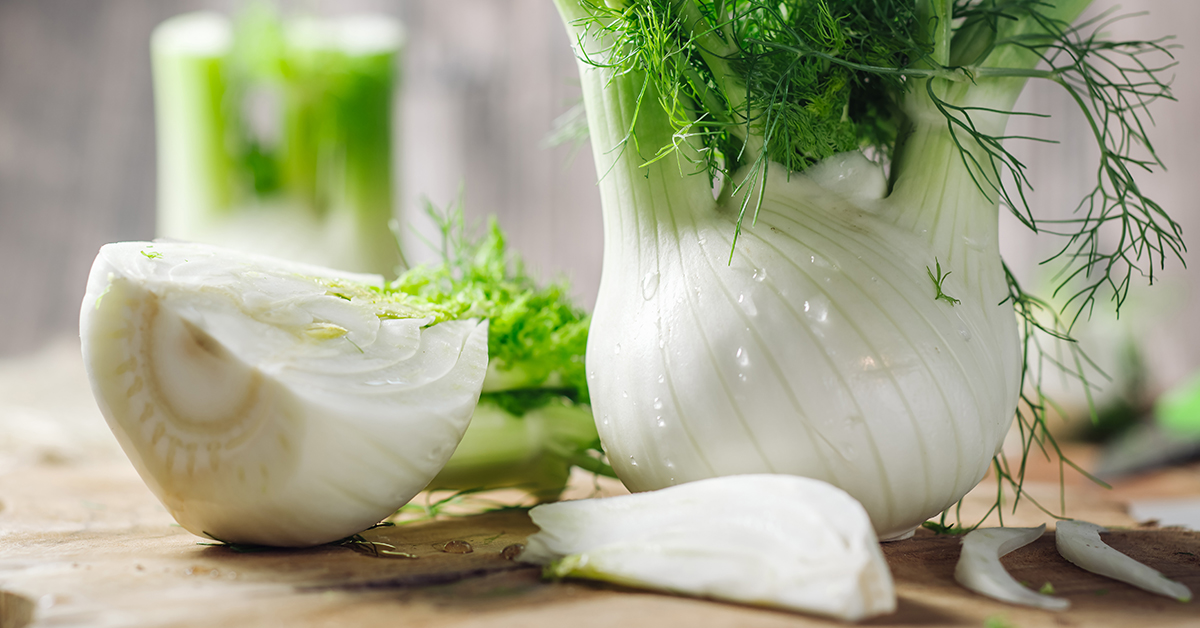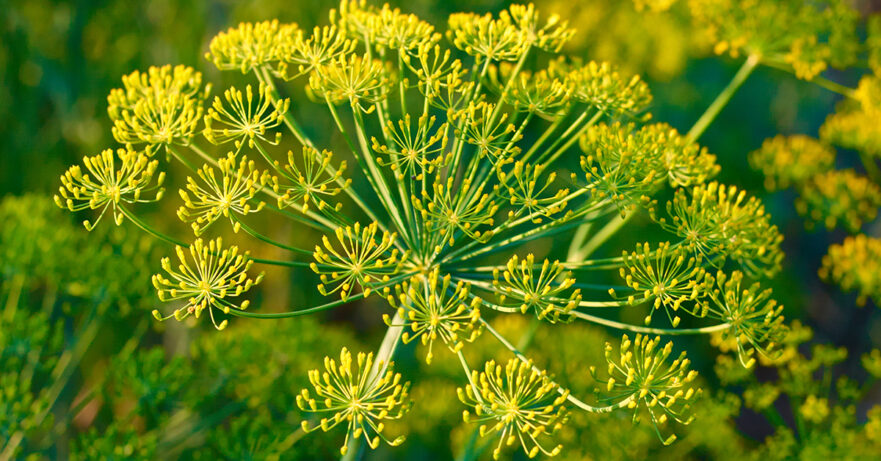In this monograph about fennel:
📖 Introduction | 🌱 Botanical Description | 📜 Traditional Uses | 🔍 Phytochemistry | ✨ Applications and Uses | 🛡️ Safety Profile
📖 Introduction
Fennel (Foeniculum vulgare) is a perennial, aromatic herb with significant culinary and medicinal uses. It is especially known for its seeds’ carminative and anti-inflammatory properties. This herb is particularly valued for relieving digestive issues and supporting respiratory health.
| English Name | Fennel |
| Latin Name | Foeniculum vulgare |
| Parts Used | Seeds, bulb, leaves |
| Traditional Uses | Digestive aid, colic relief, respiratory conditions |
| Herbal Actions | Carminative, anti-inflammatory, antispasmodic |
🌱 Botanical Description
Scientific Classification
Fennel belongs to the Apiaceae family, which includes other herbs like parsley and carrots.
Physical Characteristics
Fennel is characterized by its feathery leaves, yellow flowers, and distinctive aromatic seeds. It can grow up to two meters tall.
Natural Habitat and Cultivation Details
Native to the shores of the Mediterranean, fennel has adapted to various climates worldwide. It thrives in dry soils and full sun, making it a common sight in temperate gardens and roadsides.
📜 Traditional Uses
Fennel has been traditionally used to alleviate digestive discomfort, such as bloating and gas, and to enhance women’s health by regulating menstrual cycles. Its seeds are often chewed after meals to aid digestion and freshen breath.

🔍 Phytochemistry (Active Constituents)
Fennel’s phytochemical profile is rich in compounds that support its traditional uses and provide health benefits, though some may require cautious use.
- Essential oil: Fennel essential oil contains anethole, which is known for relaxing the smooth muscles of the digestive tract and reducing inflammation. Other significant compounds, like fenchone and estragole, contribute to its medicinal properties but also raise concerns about toxicity in high doses.
- Flavonoids: These compounds provide antioxidant benefits, supporting overall health and combating oxidative stress.
- Phenolic compounds: Contribute to the plant’s anti-inflammatory and antibacterial properties.
✨ Applications and Uses
Fennel is utilized in various herbal remedies to support digestive and respiratory health and to assist in hormonal regulation.
- Digestive health: Fennel is widely used in teas and supplements to relieve indigestion, bloating, and irritable bowel syndrome (IBS).
- Respiratory health: The seeds’ expectorant properties make them beneficial in cough preparations, helping to clear mucus from the lungs.
- Hormonal balance: Fennel is used in supplements to ease menopausal symptoms and promote healthy menstrual cycles. However, clinical data supporting these uses are limited, and further research is needed to confirm these benefits.
🛡️ Safety Profile
Fennel is generally safe for most people when used in food and in moderate medicinal amounts.
However, due to its potent estrogenic properties, it should be used cautiously by those with hormone-sensitive conditions.
The essential oil, particularly concentrated in anethole, should be avoided during pregnancy and by individuals with epilepsy or taking anticoagulant medications.
Always consult a healthcare provider before starting any new herbal treatment to ensure it is appropriate for your health conditions and other medications.
📃 Related Posts
🌱 Related Herbs

